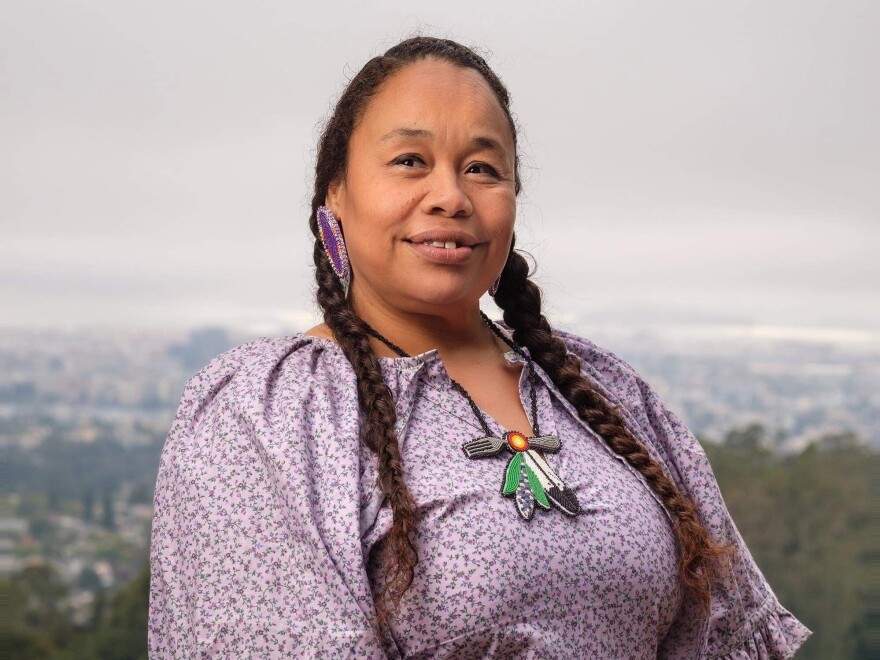Crystal Wahpepah wants you to ask yourself: what foods are native to the land that you're on? The Indigenous chef from Oakland, Calif., is on a mission to bring the ingredients and dishes of her community to more people.
Wahpepah always had a love for cooking, having started when she was just a kid making meals with her grandmothers and aunties. She's from Oklahoma — Kickapoo on her grandfather's side, and Sac and Fox on her grandmother's side.
When Wahpepah started catering 12 years ago, she realized there weren't a lot of Indigenous chefs, or places to get Indigenous food. Over time, she catered lots of events, eventually growing her business to the point where she was preparing food for tech giants like Google, Facebook and Twitter.
But whether she was cooking for her native community or Silicon Valley, she would get questions about the food — about where it originated, or what tribe it was from. She realized she didn't have all the answers.
"A lot had to do with a lot of historical trauma and displacement, especially of our foods," she said.
So Wahpepah set off on a quest to get those answers, starting with Oklahoma.
She spoke with native farmers and seed keepers from all over the country, learning more about these native ingredients and their history. She joined Food Sovereignty Alliance and went to food summits where native chefs and farmers gathered.
"We all kind of met together and it was something ... I was so missing [and] they were missing," Wahpepah said.
Her favorite thing to learn about was seeds.
"We have so many different beautiful seeds that are from here ... I wanted to know more," she said. "How they're carried, how they're kept and where they're kept. And you know, how they grow if they're not from that area."
After more than a decade of catering, Wahpepah is opening her own restaurant. Called Wahpepah's Kitchen, it will be the newest Indigenous restaurant in Oakland. She hopes her food introduces people to her culture.
"At the end of the day, that's what I want: to make people fully aware or people just to realize whose land they're on," she said.
"I feel that Native American communities, Native American people are so forgotten ... and so that's my job is to actually make everyone aware how good our foods are. Everybody has their job. My job is to cook beautiful native ingredients on the on the plate."
On the menu you can find lots of squash, bison blueberry sausage with blue corn topped with huckleberries, venison meatballs with blueberry sauce, homemade chili and more. Her menu honors her childhood — and different tribes.
"My tribe, of course. And we're sited on Ohlone land, and when it comes to that, we have the acorn," Wahpepah said. "When we have the smoked salmon, it's honoring the Pomo tribe, which is up north and my children are Pomo and I have family members that are Pomo. I'm honoring that."
"I never try to dabble in something I never grew up with. This is something that made me who I am and what I embrace."
Most of her ingredients are provided by Indigenous farmers from around the country who she has built relationships with over the years. And Wahpepah wants her restaurant to inspire other Indigenous chefs.
"I want them to know that if I can do it, you can do it too," she said. "The more I waited, the more and more I had this vision of how much my community needs me, how much our community needs to see native foods on the front line in the community, not just from catering.
"And if they see a restaurant, maybe it can go from there. Somebody else will want to open a restaurant."
Copyright 2021 NPR. To see more, visit https://www.npr.org.




